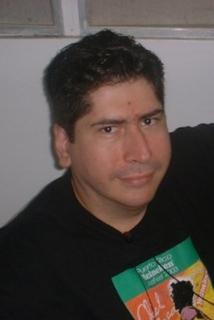HUGO CHAVEZ DEFEATED!

Hugo Chavez Denied Controversial Constitutional Reforms
(RTTNews) - Venezuelan President Hugo Chavez suffered a huge setback when he narrowly lost a referendum on controversial constitutional reforms that could have indefinitely extended the president's grip on power.
Voters rejected two ballot measures by a margin of 51% to 49% that would have changed 69 articles in Venezuela's Constitution, which was rewritten in 1999, the year Chavez assumed office, the chief of the National Electoral Council said.
Chavez described the defeat as a "photo finish", and urged followers not to turn it into a point of conflict.
"Don't feel sad or weighed down . . . This was a microscopic difference but with the "no's" on top," Chavez said.
"Venezuela won today, democracy won today, and I am sure that this victory for the Venezuelan people will have a very important impact in the rest of Latin America," Leopoldo Lopez, opposition mayor of Caracas' Chaqua municipality, told the BBC.
The opposition began their celebrations almost immediately in the capital, Caracas, with activists cheering, blaring car horns and waving flags. Critics say the victory will put a brake on Chavez's self-styled "Socialist revolution".
The results were announced early Monday morning by the Election Commission. If the changes had been approved, Chavez could have run for president for seven year terms. Now, the limit is two six year terms, and currently Chavez cannot run again until after 2012.
Voter turnout came in slightly higher than 55%. The turnout in poorer neighborhoods, strong supporters for Chavez, suggested that the referendum was drawing a mixed response. Some analysts suggest that the loss could strengthen Chavez's domestic opponents.
Other changes in the referendums would have shortened the workday to six hours, created a social security fund for informal workers and promoted communal councils. It would have also given Chavez control over the Central Bank.
The referendums also included provisions for lowering the voting age to 16 from 18 and expanding presidential powers during natural disasters or political emergencies, including powers to censor the media.
Before his presidency, Chavez was a lieutenant colonel. He led a 1992 coup that failed but made him famous and helped him towards the presidency. Chavez won power in presidential elections in 1998. An opposition led by some politicians and military officers led to a coup in 2002, but Chavez was put back in power less than two days later.
According to the electoral council, nearly 100 electoral observers from 39 countries in Latin America, Europe and the United States were on hand.



0 Comments:
Publicar un comentario
<< Home